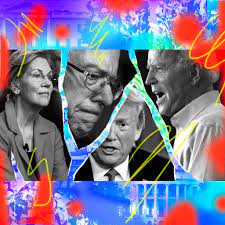
The age limit for presidential candidates varies from country to country, and it can range from having no specific age requirement to requiring candidates to be a certain age to run for the presidency. Here are some examples of different age limits for presidents in various countries:
United States: In the United States, a candidate must be at least 35 years old to run for the presidency. This is specified in Article II, Section 1 of the U.S. Constitution.
France: The age limit for the President of France is 18 years, which is the minimum voting age in the country.
United Kingdom: There is no specific age requirement to be the Prime Minister of the United Kingdom, as the Prime Minister is the head of government rather than the head of state. However, candidates typically enter politics and climb the political ladder before becoming Prime Minister, which often means they are well into adulthood.
Germany: In Germany, the President must be at least 40 years old.
India: To be eligible for the presidency in India, a candidate must be at least 35 years old.
Brazil: The minimum age for a presidential candidate in Brazil is 35 years.
Russia: The age requirement to run for the presidency in Russia is 35 years.
It’s important to note that while there are age limits in some countries, there are also varying requirements regarding citizenship, residency, and other qualifications that potential presidential candidates must meet. The age requirement is just one of several criteria that may need to be satisfied. Additionally, some countries have different age limits for parliamentary positions, which may vary from the presidential age limit.
The specific age requirements for presidential candidates are determined by each country’s constitution or legal framework. These requirements are often established to ensure that candidates have a certain level of life experience and maturity to hold such a significant public office. However, the absence of an age requirement in some countries reflects the belief that voters should have the ultimate say in whether a candidate is qualified, regardless of age.
Whether there should be an upper age?
The question of whether there should be an upper age limit for holding public office, including the presidency, is a matter of debate and can vary depending on the country’s political and legal systems. Different countries have different perspectives on this issue, and there is no one-size-fits-all answer.
Arguments for imposing an upper age limit for public office include concerns about the cognitive and physical abilities of older individuals, the potential for decreased stamina, and a potential disconnect from the experiences and perspectives of younger generations. Some believe that older candidates may be less in touch with the changing needs and concerns of society.
On the other hand, there are arguments against imposing such limits. Many countries believe in the principles of democracy and individual rights, which allow citizens to choose their leaders based on their qualifications, regardless of age. Some people argue that imposing age limits could be seen as discriminatory and limit the choices available to the electorate.
Ultimately, the decision to impose an upper age limit for holding public office, including the presidency, is a matter for each country’s constitution or legal system to address. Different countries will have different laws and regulations on this issue, reflecting their unique political and cultural contexts. It is up to each country’s citizens and lawmakers to decide what, if any, age limits should be in place for public officeholders.





